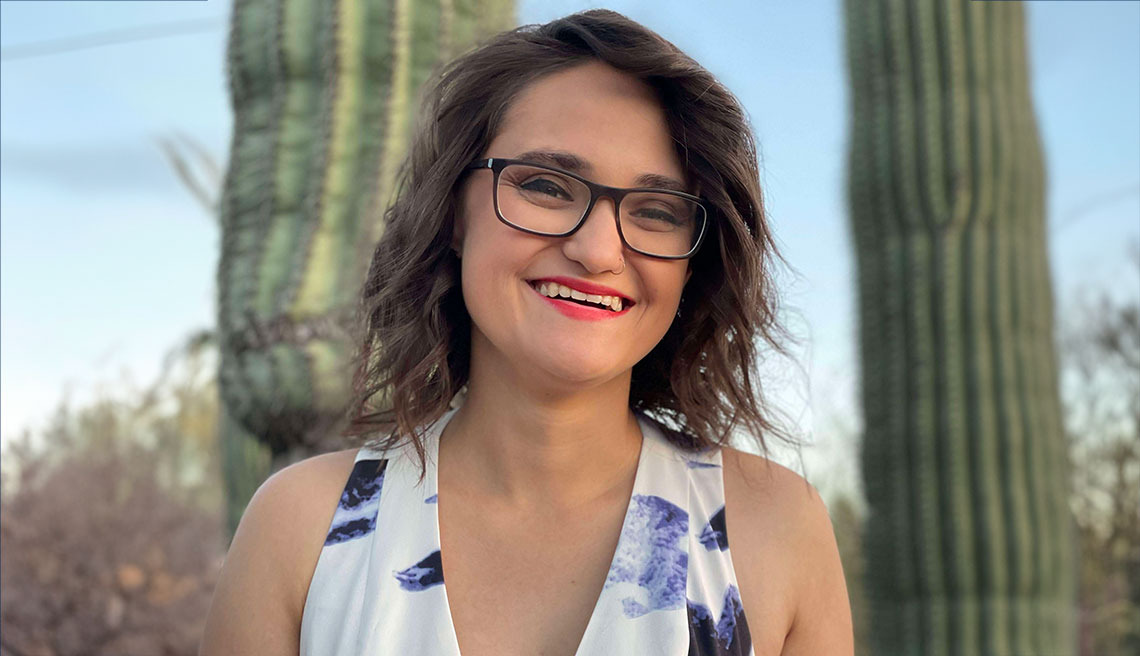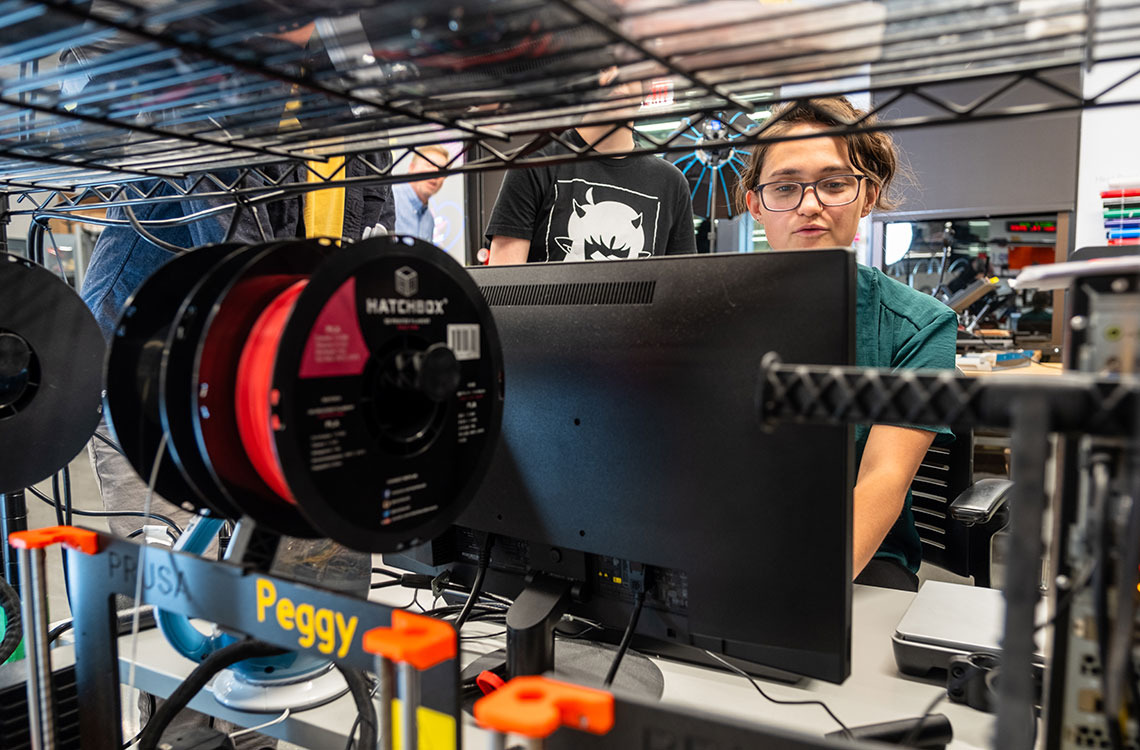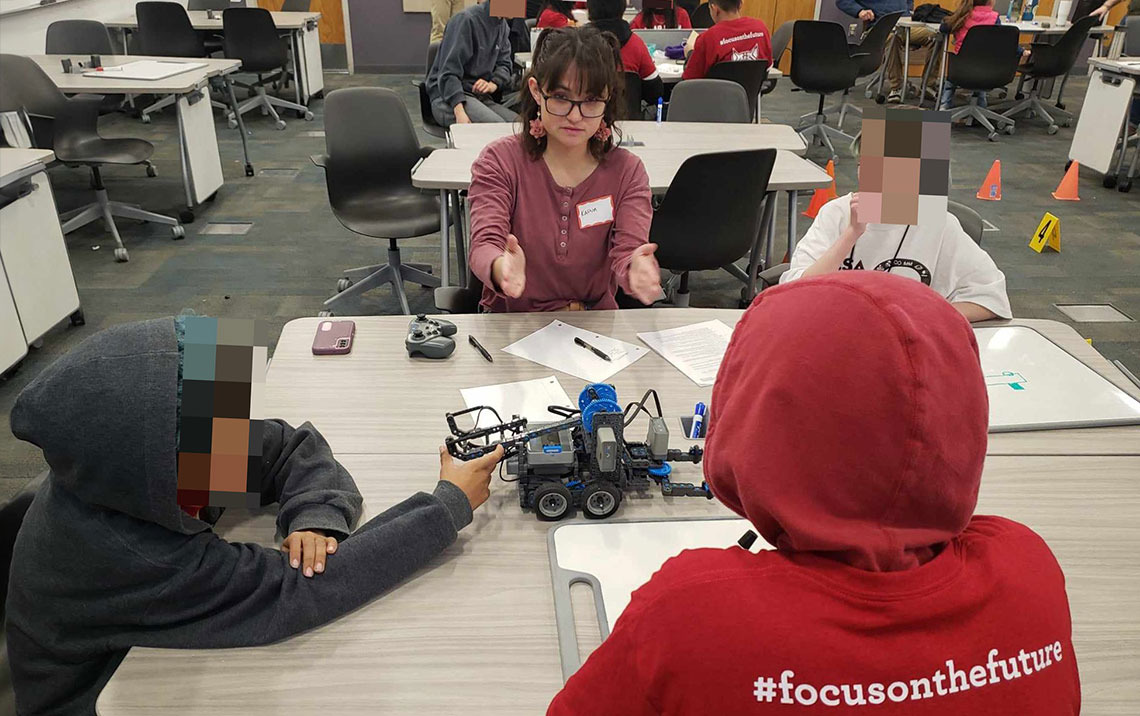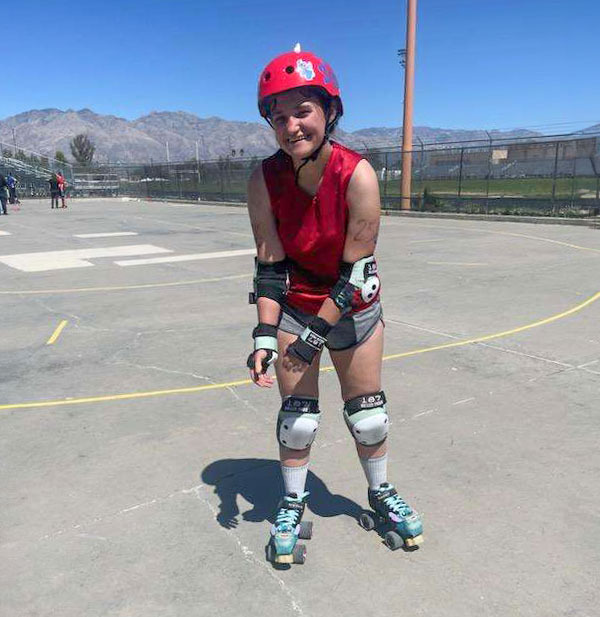Making Technology Accessible to All: 9 Questions with Kapua Ioane, BSIS, BACS ’23
iSCHOOL STUDENT PROFILE

The sciences and technology are growing ever more prominent. I want to know not only how to make developing tech more accessible to a wider audience, but also how to make technology more accessible as a field.
Originally from Tucson, Arizona, Kapua Ioane earned her Bachelor of Science in Information Science (Emphasis in Interactive and Immersive Technologies) and Bachelor of Arts in Computer Science in December 2023. A first-generation student whose focus is increasing accessibility in technology, she is the School of Information Fall 2023 Outstanding Senior.
What brought you to the University of Arizona to study information and computer science?
I like to joke that I was bred for college. Right from 6th grade, I was placed into college readiness programs and heavily encouraged to have conversations about my future. A lot of the eagerness came from the fact that I was low-income and a first-generation student, so everyone around me wanted to make sure that I had all the information I could ever want (and more) about my options. But, the only huge thing that remained consistent for me was the fact that I wanted to go out of state for college. I was a hair away from flying out to upstate New York to attend college at a small liberal arts school. However, the day before Decision Day my senior year of high school, I received news that I had earned the Dorrance Scholarship. The Dorrance Scholarship is designed to encourage first-generation and low-income students to study at an in-state university in Arizona. In addition to paying off 95% of my tuition, they offered a study abroad semester and professional development stipend, paid for private tutoring and more. It was a no-brainer to accept the scholarship and stay in Tucson for college!

Kapua Ioane in the University of Arizona CATalyst Studios. Photo by Michael McKisson.
What areas within information and computer science most interest you?
It’s not readily obvious by my degrees, but I have a specific interest in STEM education and accessibility, especially with how it relates to computing. The sciences and technology are growing ever more prominent. I want to know not only how to make developing tech more accessible to a wider audience, but also how to make technology more accessible as a field. The way classes are taught, the language that is used and even the framework of a lesson—all can have major differences on whether a BIPOC person can fully participate or if a person with a disability can be included.
What do you like best about the BS in Information Science program?
I love the flexibility and range of classes I can take. The iSchool offers so many specializations that anything I want is made readily available.
What has been your biggest challenge at the iSchool, and how have you overcome that challenge?
My biggest challenge at the iSchool has been navigating so many different cultures and backgrounds and still feeling unseen. I’m white passing, but ethnically, I’m Native Hawaiian. But I was born and raised in Southern Arizona. It’s hard to identify where I fit in and who I can relate to. This is especially true when people make assumptions about my background and I have to decide if it’s even worth correcting, or people make a comment not realizing that I fall into a category that they are talking about. I remember a classmate saying how donating “scraps of food” to people in poverty was charitable because it’s better than nothing, and I didn’t know how to express how dehumanizing that experience is as someone who has been there. After a while you learn how to navigate these circumstances and tactfully educate others on their misconceptions.

Kapua Ioane works with middle school students to improve their battlebot for an upcoming competition. Photo courtesy Kapua Ioane.
What has been your biggest challenge outside of iSchool, and how have you overcome that challenge?
My biggest challenge in general has been fighting stereotypes and breaking patterns, but in a way that means something to me. Like I said before, I’m a first-generation and low-income student, there was and is a lot of pressure on me to break these generational patterns of poverty. In addition, because I'm a Hawaiian who has spent very little time around other Hawaiians, sometimes it felt like I was trying to overcompensate for my cultural disconnect. Because of these factors, I often feel that I have to make certain decisions, otherwise it’s a step in the wrong direction. And while I do want to break out of the cycle, I don’t want to become a token of that. I want to make decisions based on what will make me happy and not what I think is the “right” thing to do.
Tell us about your internship experience and career aspirations.
For two and a half years, I worked as a software engineer intern at Axon Enterprise. In addition, throughout my undergraduate career, I worked as a teaching assistant/preceptor/section leader for the university in four different classes and departments, helping about 1,500 students over my time.
Now that I’ve graduated, I’m getting ready to start as a coordinator for TRiO Upward Bound at Pima Community College, which is a federal grant program to get low-income and first-generation students to four-year institutions. In the long term, I would love to return to school and do research on STEM education and accessibility.

Kapua Ioane skates as Lilo N Stitches #256 in the Tucson Roller Derby. Photo courtesy Kapua Ioane.
What are your passions outside of school?
Just like everyone else, I’m weird. I love tabletop games and reading. But my most interesting hobby is roller derby! I skate in the Tucson Roller Derby league as Lilo N Stitches #256. I’m on a small break right now because I broke my shoulder around Halloween, but I’m still very active in my league.
What does the iSchool experience mean for you?
I chose the School of Information because it gave me the flexibility to explore the things I was interested in, even topics outside of the iSchool. In addition to my degree in the iSchool, I got a second degree in a different college, a minor in American Sign Language and a certificate in Agricultural Leadership. I don’t know of any other college that affords its students such flexibility.
What advice do you have for prospective iSchool students?
Do what you want to do because you want to do it. You can pivot any iSchool degree into any career or passion you want. If you have drive, you will succeed if you pursue the things you are passionate about, even if they aren’t conventional.
Explore the Bachelor of Science in Information Science, offered on campus and online, or support our changemaking undergraduate iSchool students just like Kapua Ioane.

